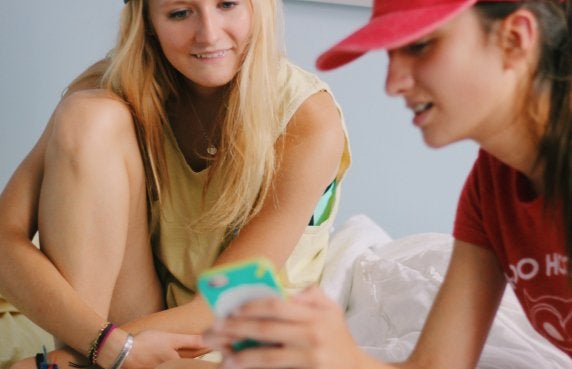‘Glowing up’ has become a popular notion in modern culture over the years. While it started gaining representation in contemporary media, such as movies, we now see it becoming more widespread across social media platforms, such as TikTok, YouTube and Instagram. We have become familiar with the ‘ugly’ girl going through a transformation and revealing her ‘true’ beauty after getting a makeover, removing her braces and glasses, putting on makeup, straightening her hair, putting on a nice outfit, etc. However, the way that the modern glow up has become represented/portrayed on social media speaks to and reveals society’s obsession with pressuring people to conform to supposed beauty standards.
A glow up, simply put, is a form of transformation that is visibly observed, and happens physically (in a person’s appearance), mentally or otherwise. The most common examples of glow ups we’ve seen are among celebrities such as Kylie Jenner, Bella Hadid and Ariana Grande, as well as in the trending #glowupchallenge on Twitter, where people would post a photo of themselves in their former years alongside a more recent one to show the dramatic change in their appearance between the two photos. Many YouTubers have posted videos of themselves going through a ‘glow up transformation’ within a short space of time, usually spending unrealistic amounts of money to achieve a desired look. It has thus become trendy to participate in glow up culture.
There are many problems with the current glow up culture, the most obvious being the fact that ‘glowing up’ may be rooted in the pressure placed on us to conform to society’s often unrealistic beauty standards. Glowing up usually requires the subject to be more visually appealing than before, and while this can be achieved through natural means, many celebrities get plastic surgery, receive Botox, fillers and undergo other artificial processes to obtain a desired look. We may see Instagram models glowing up, but we are not aware of the amount of money and resources they have at their disposal to go through that process. As consumers of social media, we’re constantly bombarded with media of these people appearing a certain way and, naturally, many of us aspire to look the same way, even though most don’t have the same resources that they do.
People who display their glow up on social media send the message, sometimes even unknowingly, that their former self was not good enough. They usually do this by deprecating what they looked like, and who they were, before the glow up took place.
Glowing up itself, however, is not necessarily problematic as we should always strive to take better care of and become better versions of ourselves. Additionally, it is granted that looking better physically may boost people’s confidence. There are many tutorials available on the internet on how to glow up and many of them focus on changing your physical appearance, which just feeds into the entire beauty standards discourse. We should move away from the dialogue that is always subtly implying that this is what people should do and what they should look like. Rather, more emphasis should rather be placed on ‘glowing up’ internally. People should be encouraged to lead healthier lifestyles and strive to do better in their lives by their own individual standards, not following a certain model that has been constructed by others.
Ultimately, glow up culture has the potential to feed into the toxicity that we see in certain sectors of social media, such as the hustle culture, where the message is rooted in making others believe that what they currently do and who they are is not enough and that they should be aiming to do more. This can lead to people having low self-confidence and self-worth, as they constantly compare their appearance, lifestyle and productivity levels with others online, which is detrimental to mental health. Therefore, what is meant to inspire positive change can, in turn, be potentially harmful.


